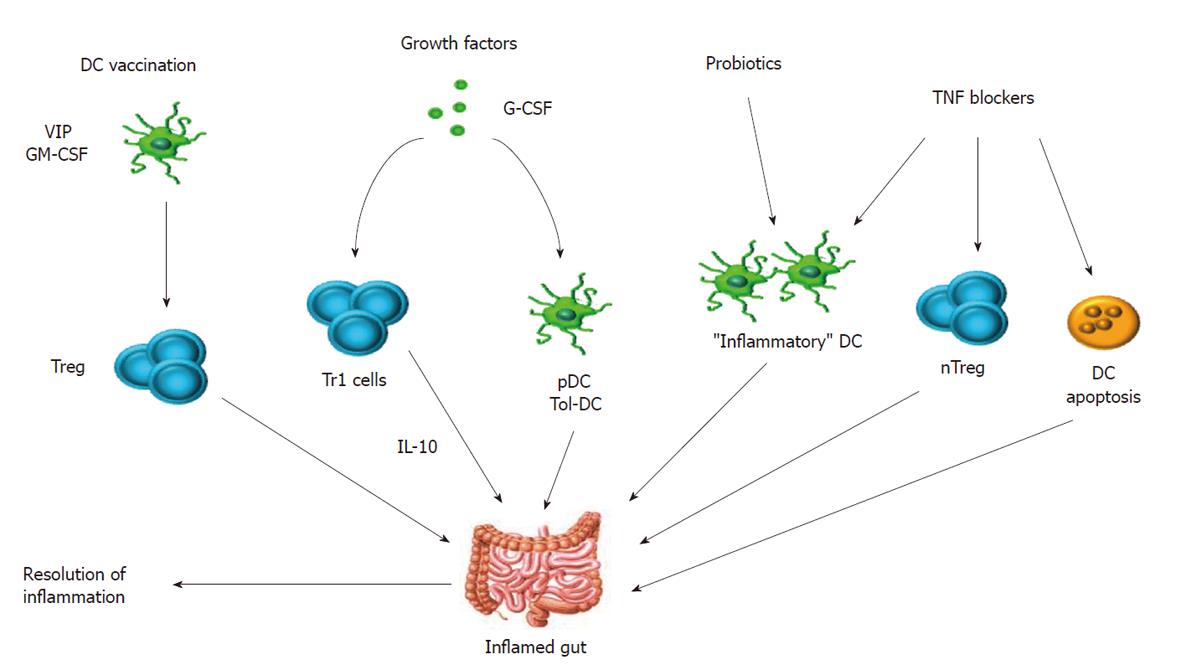Copyright
©2011 Baishideng Publishing Group Co.
World J Gastroenterol. Sep 7, 2011; 17(33): 3761-3775
Published online Sep 7, 2011. doi: 10.3748/wjg.v17.i33.3761
Published online Sep 7, 2011. doi: 10.3748/wjg.v17.i33.3761
Figure 2 Potential strategies to modulate dendritic cell functionality in human inflammatory bowel disease.
In vitro differentiated tolerogenic dendritic cell (DC) have been administered to mice with inflammatory/autoimmune disorders. Vasoactive intestinal peptide (VIP) has a unique ability to skew DC function towards a tolerogenic profile and has been used to vaccinate animals with colitis, rheumatoid arthritis and post-transplantation graft-versus-host disease[76,77]. Selected growth factors have shown to modulate immune reactivity in vivo. For instance, granulocyte colony-stimulating factor (G-CSF) has been successfully given to patients with Crohn’s disease, leading to accumulation of pDC in the lamina propria and increase in IL-10 production, with favorable repercussions on disease manifestations[89]. GM-CSF: Granulocyte-macrophage colony-stimulating factor; IL: Interleukin; TNF: Tumor necrosis factor.
- Citation: Rutella S, Locatelli F. Intestinal dendritic cells in the pathogenesis of inflammatory bowel disease. World J Gastroenterol 2011; 17(33): 3761-3775
- URL: https://www.wjgnet.com/1007-9327/full/v17/i33/3761.htm
- DOI: https://dx.doi.org/10.3748/wjg.v17.i33.3761









